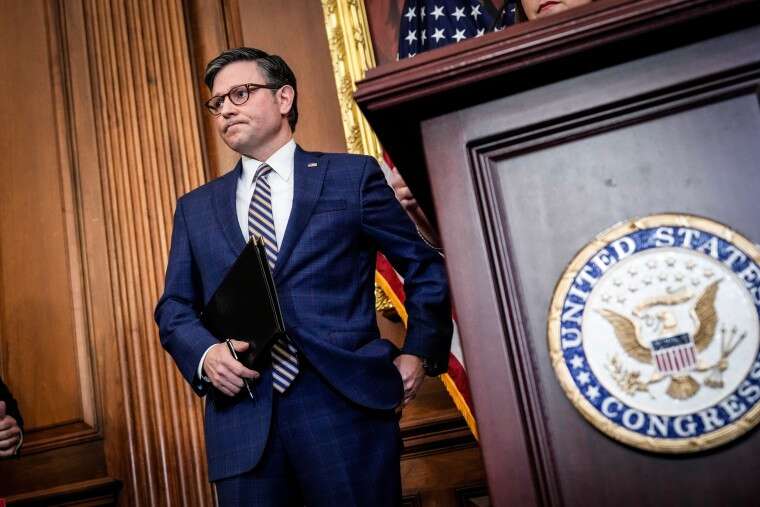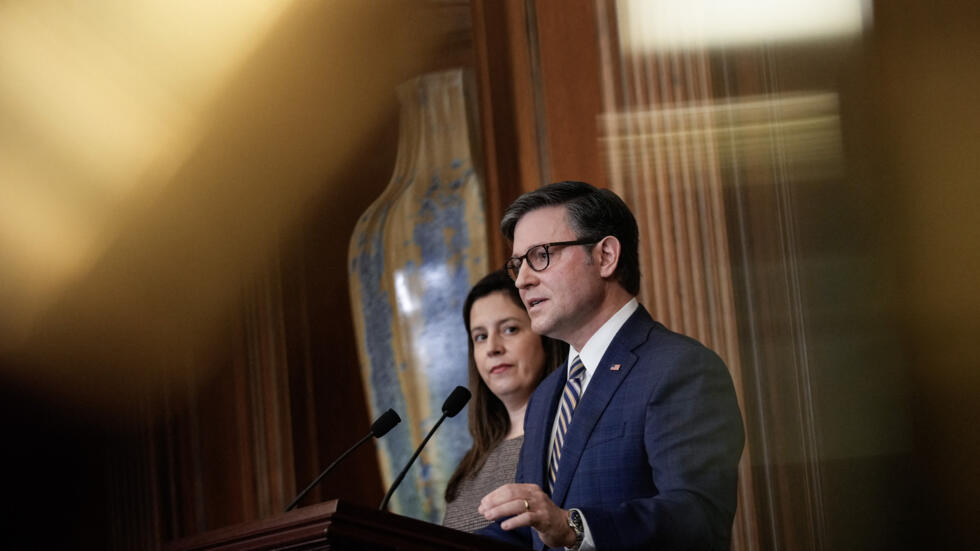In a strategic move to prevent a partial government shutdown, US House Speaker Mike Johnson has proposed a novel two-step package. This approach, deviating from traditional stopgap measures, reflects the complex political landscape and the urgency to maintain government operations amidst fiscal challenges.
The Two-Step Proposal Explained
Speaker Johnson’s proposal involves extending government funding for certain agencies and programs until January 19, while others will continue receiving funds until February 2. This bifurcated approach addresses GOP lawmakers’ concerns about being presented with a massive spending bill just before the holidays. It’s a tactical move aimed at balancing fiscal responsibility with the need to keep the government operational.

Political Dynamics and Challenges
The proposal excludes funding requested by President Joe Biden for Israel, Ukraine, and the U.S. border with Mexico. Johnson’s decision to separate these from the temporary funding measure is a strategic positioning for fiscal responsibility and policy changes. This move, however, has not been without criticism, with some hardline conservatives expressing their reservations and the White House labeling the plan as “unserious” and a threat to national security and domestic programs.
Implications for Government Operations
The proposal comes at a critical time when the federal government is operating under funding levels approved last year. The need for a continuing resolution underscores the challenges in reaching a long-term agreement on government spending. The approach taken by Speaker Johnson reflects the ongoing negotiations and the delicate balance required to avoid a shutdown.
The Broader Fiscal Context
This development occurs against the backdrop of Moody’s Investors Service lowering its outlook on the U.S. government’s debt to “negative” from “stable.” This decision, influenced by rising interest rates and political polarization, highlights the broader fiscal challenges facing the nation. The national debt, now exceeding $33 trillion, adds to the complexity of these budgetary negotiations.
A Critical Juncture for Fiscal Policy
Speaker Johnson’s two-step package to avoid a partial government shutdown represents a critical juncture in U.S. fiscal policy. It reflects the intricate interplay of political strategy, fiscal responsibility, and the imperative to maintain government operations. As negotiations continue, the outcome of this proposal will have significant implications for the country’s fiscal health and governance.
